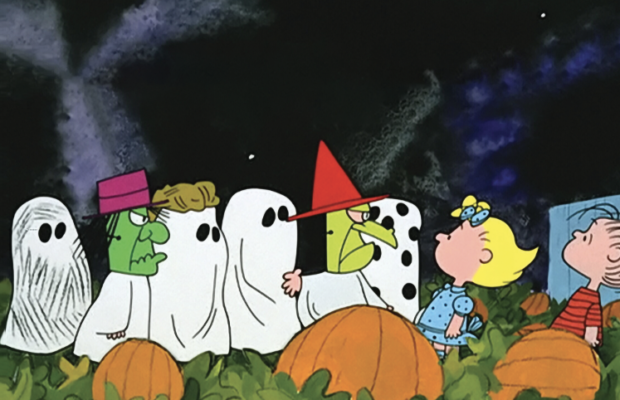A Self-Induced Nightmare Scenario

Most readers would not expect to find the 1966 classic “It’s the Great Pumpkin, Charlie Brown” on the list of the scariest Halloween movies of all time. But for reasons that may not seem obvious at first, as an elder law attorney, I’d put it at the top of my list.
The main storyline focuses on Linus, who believes that the Great Pumpkin rises up from the pumpkin patch every Halloween to bring toys to good girls and boys. His faith in the Great Pumpkin is so strong that he decides to spend all Halloween night at the pumpkin patch. Linus experiences several scares throughout the night, but his experience in the pumpkin patch is not why I’d put this cartoon at the top of my list of scariest Halloween movies of all time.
While Linus waits for the Great Pumpkin, other storylines unfold involving Charlie Brown and the rest of the gang. For Charlie, who is always a bit socially awkward, a slight scare comes in the form of an invitation to Violet’s Halloween party. He decides to attend after trick-or-treating, and things don’t go well for him. But Charlie’s unpleasant experiences at the party are also not why I’d put this cartoon at the top of my list.
I put “It’s the Great Pumpkin, Charlie Brown” at the top of my list because of an interaction between Charlie and Lucy. The scene opens with Lucy, as she has done many times, offering to hold a football for Charlie Brown to kick. Indicating that he learned his lesson from past experiences, Charlie refuses. But when Lucy produces a “legal document” stating that she will not pull the football away this time, he reluctantly agrees to take another run at it. To no one’s surprise other than Charlie, Lucy pulls back the football just as he makes his attempt, and Charlie again ends up flat on his back. In her defense, Lucy explains to Charlie that the document on which he relied was not notarized and not worth the paper it was written on.
As an elder law attorney, this scene invokes a scenario that can be terrifying in the real world. In my experience, the problem with legal documents usually does not stem from a simple oversight in having a signature notarized. Most people get that part right. In the real world, major legal problems often stem from the actual language used in drafting or, worse, printing an inferior form off the Internet.
The worst repeat offender is none other than the basic power of attorney document. Many believe that all powers of attorney are created equal, that the exact wording of the document doesn’t matter, and that these are so unimportant that a generic form from the Internet will probably cut it. But when those inferior powers of attorney are rejected when they are needed most, a nightmare scenario can ensue.
What could go so wrong? One common example is the “effective date” of the document. In most cases, I draft power of attorney documents to be effective immediately when they are signed, but some forms don’t spring to life until some future event—usually a declaration of incapacity. Most people, when asked, do not want to require a formal declaration of incapacity before the document is effective, but many forms say the exact opposite, forcing the family to jump through many unpleasant hoops at the very time the power of attorney is needed most.
Another common example involves my specialty: asset protection for long-term care needs. Many powers of attorney expressly prohibit the exact steps I often recommend to elderly clients about to enter long-term care. Most people, when asked, want to allow the types of powers needed to engage in asset protection planning, but the default forms say the opposite.
There are countless other examples in which legal documents don’t do what people think they’ll do—too many to list here. Some people count on wills to avoid probate court (they don’t) or revocable trusts to shelter assets from long-term care costs (they don’t). A legal document like a will, trust, or power of attorney that does not do what you thought it would do is just as worthless as Lucy’s “legal document” on which Charlie regrettably relied.
Don’t end up flat on your back like Charlie Brown. Make sure the documents on which you rely do what you need them to do, when you need them to do it. Estate planning is too important to leave to chance.









0 comments